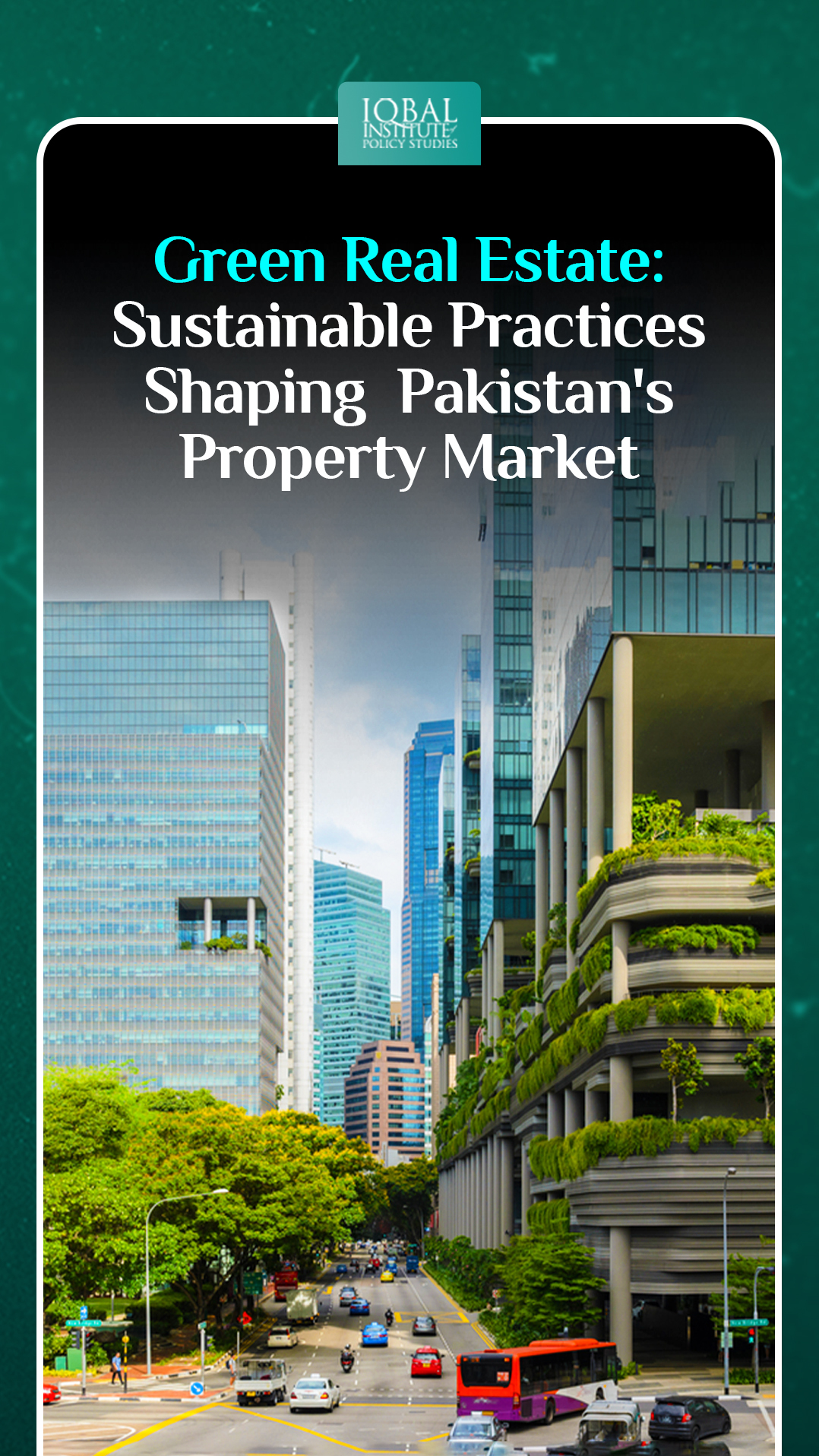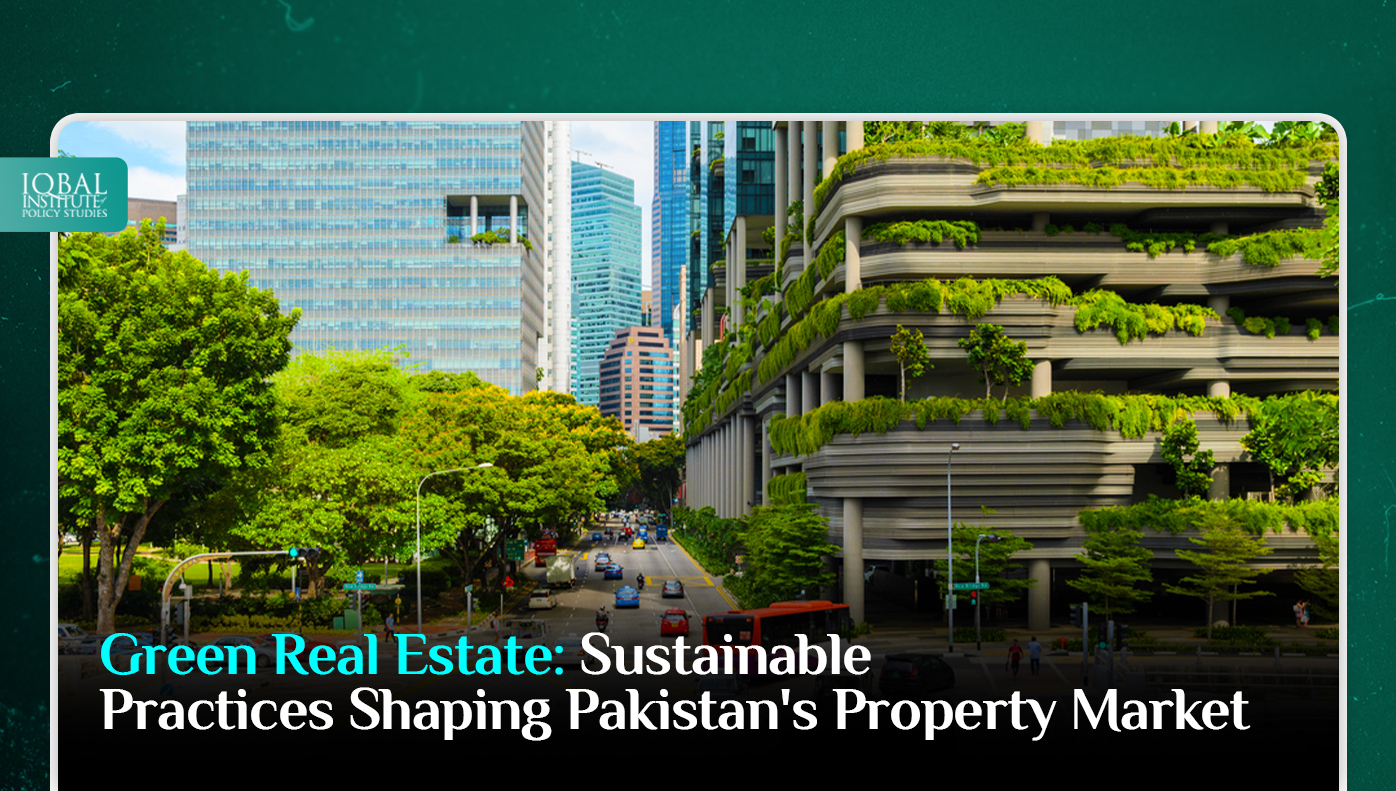Introduction
Pakistan’s real estate sector is witnessing a significant shift towards sustainability as the global focus on environmental conservation is growing. With increasing awareness and changing consumer preferences, green real estate practices are gaining momentum in the country. This article delves into the sustainable initiatives shaping Pakistan’s property market, highlighting the benefits of green buildings, eco-friendly designs, and the integration of renewable energy solutions. By examining successful projects and exploring the challenges and opportunities, we uncover how ‘green real’ estate is transforming Pakistan’s urban landscapes while promoting a more sustainable future.
The Rise of Green Real Estate
In recent years, green real estate has gained prominence in Pakistan, propelled by several factors. Increasing concerns over climate change, energy efficiency, and environmental impact have led developers, architects, and investors to embrace sustainable practices. The concept of green buildings, which promote resource efficiency and reduced environmental footprint, has become a focal point. These buildings are designed and constructed using eco-friendly materials, efficient systems, and renewable energy sources.
The benefits of green buildings extend beyond environmental conservation. They offer reduced operational costs, improved occupant health and productivity, and long-term value appreciation. Additionally, green buildings align with the Sustainable Development Goals (SDGs), emphasizing sustainable cities and communities, affordable and clean energy, and responsible consumption and production.
Eco-Friendly Designs and Materials
Incorporating eco-friendly designs and materials is a key aspect of green real estate in Pakistan. Architects and designers are adopting sustainable principles, such as passive design strategies, to minimize energy consumption and enhance indoor comfort. Features like proper insulation, orientation, and natural ventilation reduce the need for artificial heating and cooling, resulting in energy savings and reduced carbon emissions.
Furthermore, eco-friendly materials are being used extensively in construction. Sustainable alternatives like recycled materials, low-VOC (volatile organic compound) paints, and environmentally friendly flooring options are gaining popularity. These choices not only minimize waste but also contribute to healthier living environments by reducing indoor air pollution.
Integration of Renewable Energy Solutions
Renewable energy plays a crucial role in the green real estate revolution in Pakistan. Solar power, in particular, has emerged as a viable and widely adopted solution. With abundant sunlight throughout the year, the integration of solar panels in buildings helps reduce dependency on conventional energy sources, lowers utility bills, and mitigates the impact of power shortages. Solar water heating systems are also becoming increasingly prevalent, providing hot water while reducing electricity consumption.
Moreover, wind energy holds potential, especially in coastal areas, where wind turbines can generate clean electricity. Developers are exploring the incorporation of wind energy systems in their projects, contributing to a diversified renewable energy portfolio.
Successful Green Real Estate Projects in Pakistan
Several notable green real estate projects have been implemented across Pakistan, serving as beacons of sustainability and innovation. One such project is the Centaurus Mall and Residencia in Islamabad, which boasts a LEED Gold certification for its sustainable design and energy-efficient features. The project incorporates solar panels, rainwater harvesting systems, and efficient waste management practices.
In Lahore, the Emporium Mall and Apartments have achieved LEED certification and is renowned for its green initiatives. The project incorporates energy-efficient lighting, water-conserving fixtures, and a comprehensive waste management system.
These projects demonstrate the feasibility and benefits of green real estate in Pakistan, encouraging further adoption and setting a benchmark for future developments.
Challenges and Opportunities
While the green real estate sector in Pakistan is gaining momentum, it faces certain challenges. Limited awareness and understanding among stakeholders, high upfront costs of sustainable features, and limited availability of skilled professionals pose obstacles to widespread adoption. However, these challenges can be overcome through education, financial incentives, and capacity building.
The opportunities for green real estate in Pakistan are vast. The country’s rapid urbanization presents a chance to incorporate sustainable practices from the ground up. Government support, such as tax incentives and regulatory frameworks, can further incentivize developers and investors to embrace green initiatives. Partnerships between public and private entities can foster innovation, knowledge sharing, and the development of sustainable urban ecosystems.
Conclusion
Green real estate is no longer a niche concept but a necessary and valuable approach to sustainable urban development in Pakistan. With increased awareness, evolving regulations, and successful projects, the sector is poised for growth. As developers and investors recognize the long-term benefits of green buildings, eco-friendly designs, and renewable energy integration, Pakistan’s property market is set to become greener and more environmentally responsible. By embracing sustainable practices, the real estate sector can contribute significantly to a more sustainable future for Pakistan and its inhabitants.
This article is written by Maha Nazami. Maha is a Research Analyst at the Iqbal Institute of Policy Studies (IIPS).



Leave a Reply